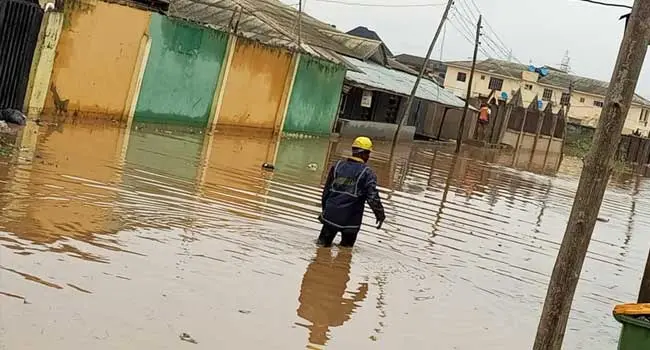A group known as Save the Children has confirmed that the 2022 floods in Nigeria claimed over 300 people in multiple states as of September.
The leading UK-based humanitarian organisation has disclosed that about 75 people died in neighbouring Niger Republic.
The body evaluates that more than 150,000 people, of which about half are children, have been affected by floods in both countries.
The torrential rain in southern Niger and northern Nigeria has caused severe damage to livelihoods, homes, crops and livestock.
The flooding has destroyed several communities along the Niger-Nigeria border, washed away, or ruined approximately 14,500 homes.
Regions affected in Niger are Maradi, Zinder, Tillaberi, and Tahoua; Adamawa, Borno, Jigawa, Kogi, Borno, Yobe states are affected in Nigeria.
The report said in Yobe, 1.6 million people – nearly 40 percent of the population – don’t know where their next meal will come from.
‘An estimated 6.3 million children under five were already predicted to suffer from malnutrition across the Sahel this year.
‘Now with flooding damaging crops and other food sources, hunger levels in Niger and Nigeria are likely to worsen’, it notified.
Famari Barro, Save the Children’s Country Director in Nigeria called for assistance to those affected, particularly kids.
Barro urged stakeholders to ensure that children can go back to school soon and that families can return safely to their homes.
‘Without immediate support, the situation could deteriorate…and significant displacement could still occur with negative coping mechanisms such as child begging or sex for money.
‘To date, the humanitarian response plan for Nigeria for 2022 has only been 37% funded. The worst is probably not over, we must act and develop prevention measures’, the director urged.
In late August, the Nigerian government announced that the floods had claimed 115 Nigerians, injured about 300 people, and displaced nearly 75,000.

